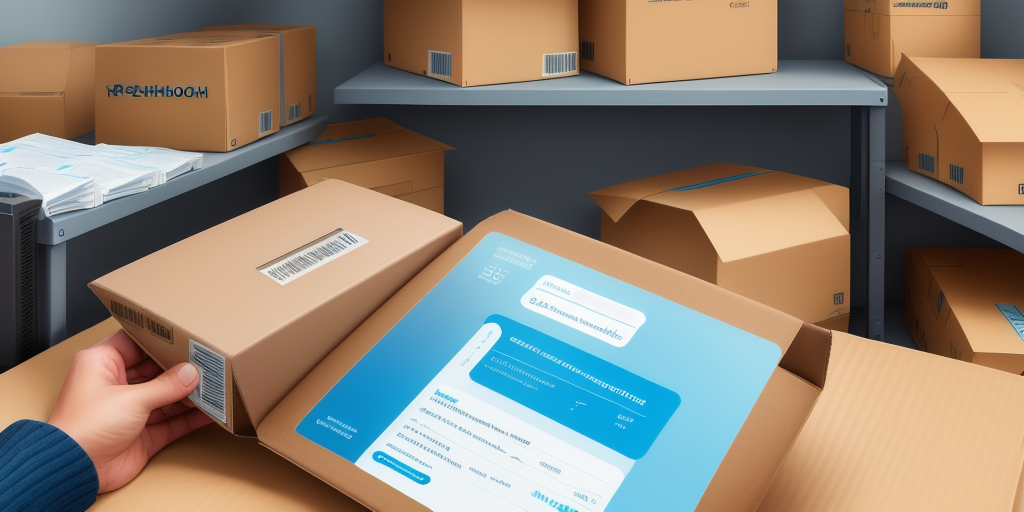FreshBooks vs Wave Accounting: Best Choices for Small Businesses
If you're a small business owner searching for accounting software, FreshBooks and Wave Accounting are likely among your top considerations. Both platforms are popular, but which one is ideal for your business? This article compares FreshBooks and Wave Accounting across various features, including pricing, user interface, mobile app capabilities, integrations, customer support, security, and more. By the end of this comprehensive analysis, you'll be equipped to choose the accounting software that best suits your small business needs.
Overview of FreshBooks and Wave Accounting
FreshBooks is a cloud-based accounting software tailored for small businesses, freelancers, and self-employed individuals. It offers a suite of features such as invoicing, time tracking, expense management, project management, and detailed reporting. FreshBooks is renowned for its user-friendly interface and exceptional customer support.
Wave Accounting, on the other hand, is a free cloud-based accounting solution designed for small businesses with up to 10 employees. It includes features like invoicing, accounting, and receipt tracking. Wave Accounting is particularly appealing to businesses operating on a tight budget due to its zero-cost structure.
One significant difference between FreshBooks and Wave Accounting is their pricing models. FreshBooks provides various pricing plans based on client numbers and required features, whereas Wave Accounting is entirely free, which can be advantageous for startups or businesses with limited financial resources.
Another critical factor is the level of customization and integrations each platform offers. FreshBooks boasts a wide array of integrations with other software and tools, facilitating a more customized and streamlined accounting process. In contrast, Wave Accounting has fewer integration and customization options, which might be a limitation for some businesses.
Key Features of FreshBooks for Small Businesses
FreshBooks offers an extensive range of tools designed specifically for small businesses:
- Invoicing: FreshBooks provides customizable templates, allowing you to create professional invoices effortlessly.
- Time and Expense Tracking: Track billable hours and manage expenses seamlessly.
- Project Management: Assign and manage tasks for team members, ensuring projects stay on track.
- Reporting and Analytics: Gain insights into your business’s financial health with comprehensive reports.
- Customer Support: Access phone, email, and live chat support for any assistance needed.
- Mobile App: Manage your business on the go with FreshBooks’ mobile app, available on both iOS and Android.
- Integrations: Connect with tools like PayPal, Stripe, and G Suite to streamline your workflow.
- Multi-Currency and Language Support: Ideal for businesses operating internationally, allowing invoicing and payments in different currencies and languages.
- Automatic Payment Reminders: Improve cash flow with automated reminders for your clients.
Key Features of Wave Accounting for Small Businesses
Wave Accounting may have a more basic feature set compared to FreshBooks, but it offers robust solutions for essential accounting needs:
- Invoicing: Customize your invoices with a user-friendly interface.
- Receipt Scanning: Easily track expenses by scanning receipts.
- Reporting and Analytics: Monitor your business’s financial status with detailed reports.
- Support Community: Access an extensive knowledge base and community forum for assistance.
- Integrations: Connect with PayPal, Etsy, Shopify, and other payment processors to manage finances efficiently.
- Multi-Currency Support: Invoice and receive payments in various currencies, with automatic conversion to save on fees.
Pricing Comparison: FreshBooks vs Wave Accounting
Understanding the pricing models of FreshBooks and Wave Accounting is crucial in making an informed decision:
- FreshBooks:
- Lite Plan: Starts at $17 per month, includes unlimited invoicing, expense tracking, and time tracking for up to five clients.
- Plus Plan: Priced at $30 per month, adds team time tracking and project management features.
- Premium Plan: Costs $55 per month, offering advanced features like proposal creation and project profitability tracking.
- Wave Accounting: Completely free to use for core features, with optional paid add-ons such as payroll services and payment processing. Premium services range from $35 to $150 per month, depending on business size and complexity.
While Wave Accounting is more cost-effective, FreshBooks offers advanced features and enhanced customization, which might be necessary for larger or more complex businesses. Additionally, FreshBooks provides 24/7 phone and email support across all plans, whereas Wave Accounting primarily relies on email support and offers limited phone support for its premium plans.
User Interface Comparison: FreshBooks vs Wave Accounting
Both FreshBooks and Wave Accounting feature user-friendly interfaces, but there are notable differences:
- FreshBooks: Offers a more polished and attractive interface with ample customization options, such as adding a company logo and altering color schemes to match your brand.
- Wave Accounting: Features a minimalist design that is straightforward and accessible, though with limited customization options.
Your choice may depend on personal preference and whether customization and branding are priorities for your business.
Mobile App Comparison: FreshBooks vs Wave Accounting
Mobile accessibility is essential for many business owners:
- FreshBooks: Provides a dedicated mobile app for both iOS and Android, enabling you to create and send invoices, manage expenses, track time, and more from anywhere.
- Wave Accounting: Does not offer a dedicated mobile app, but its website is mobile-friendly, allowing access from any device with an internet connection.
While FreshBooks offers the convenience of a dedicated mobile app, Wave's mobile-responsive website still offers substantial flexibility.
Integrations with Other Business Software: FreshBooks vs Wave Accounting
Integrations can significantly enhance the functionality of your accounting software:
- FreshBooks: Integrates with popular software like G Suite, Salesforce, and Shopify, allowing for a seamless workflow and reduced manual data entry.
- Wave Accounting: Offers integrations with PayPal, Etsy, Shopify, and other payment processors, though the range is more limited compared to FreshBooks.
Customer Support Comparison: FreshBooks vs Wave Accounting
Reliable customer support is vital for resolving any issues promptly:
- FreshBooks: Provides comprehensive support through phone, email, and live chat 24/7. Additionally, FreshBooks offers an extensive knowledge base and community forum.
- Wave Accounting: Primarily relies on its support community, including a knowledge base and community forum. Direct phone or live chat support is not available, except for limited phone support on premium plans.
Security and Data Privacy Comparison: FreshBooks vs Wave Accounting
Protecting your financial data is paramount:
- FreshBooks: Utilizes bank-level encryption to safeguard data, conducts regular security audits, and performs web application penetration testing to ensure data integrity.
- Wave Accounting: Commits to security and data privacy by using secure servers and performing frequent data backups. Wave is PCI DSS Level 1 certified, the highest level of security certification for handling sensitive financial information.
Pros and Cons of Using FreshBooks for Small Businesses
Pros:
- Intuitive and user-friendly interface
- Robust invoicing and expense tracking features
- Excellent customer support available 24/7
- Extensive integrations with other business tools
- Multi-currency and language support for international operations
Cons:
- Higher pricing compared to some competitors
- Advanced accounting features may be lacking for larger businesses
- No free subscription option available
Pros and Cons of Using Wave Accounting for Small Businesses
Pros:
- Completely free to use for core features
- Customizable invoicing tool
- Simple and minimalist interface
- Multi-currency support for international transactions
Cons:
- Limited advanced features compared to FreshBooks
- Fewer integrations and customization options
- Customer support is not as comprehensive
Which Is Better for Your Business? A Comprehensive Analysis
The choice between FreshBooks and Wave Accounting ultimately depends on your specific business requirements:
- Choose FreshBooks if:
- You need advanced accounting features and robust integrations.
- Your business requires extensive customer support.
- Customization and branding are important to you.
- Choose Wave Accounting if:
- You have simpler accounting needs and prioritize cost-efficiency.
- Your business operates on a tight budget.
- You require multi-currency support without additional costs.
Conclusion: Making the Right Choice Between FreshBooks and Wave Accounting
Both FreshBooks and Wave Accounting are excellent accounting software options for small businesses, each with its strengths:
- FreshBooks offers a more feature-rich and polished solution with superior customer support, making it ideal for businesses that can invest in a comprehensive accounting tool.
- Wave Accounting provides a solid, free accounting solution with essential features, making it perfect for businesses that need basic accounting without the financial commitment.
Ultimately, the best choice depends on your business’s unique needs, budget, and the features you prioritize most. Carefully weigh the pros and cons to determine which accounting software aligns best with your operational requirements.




















